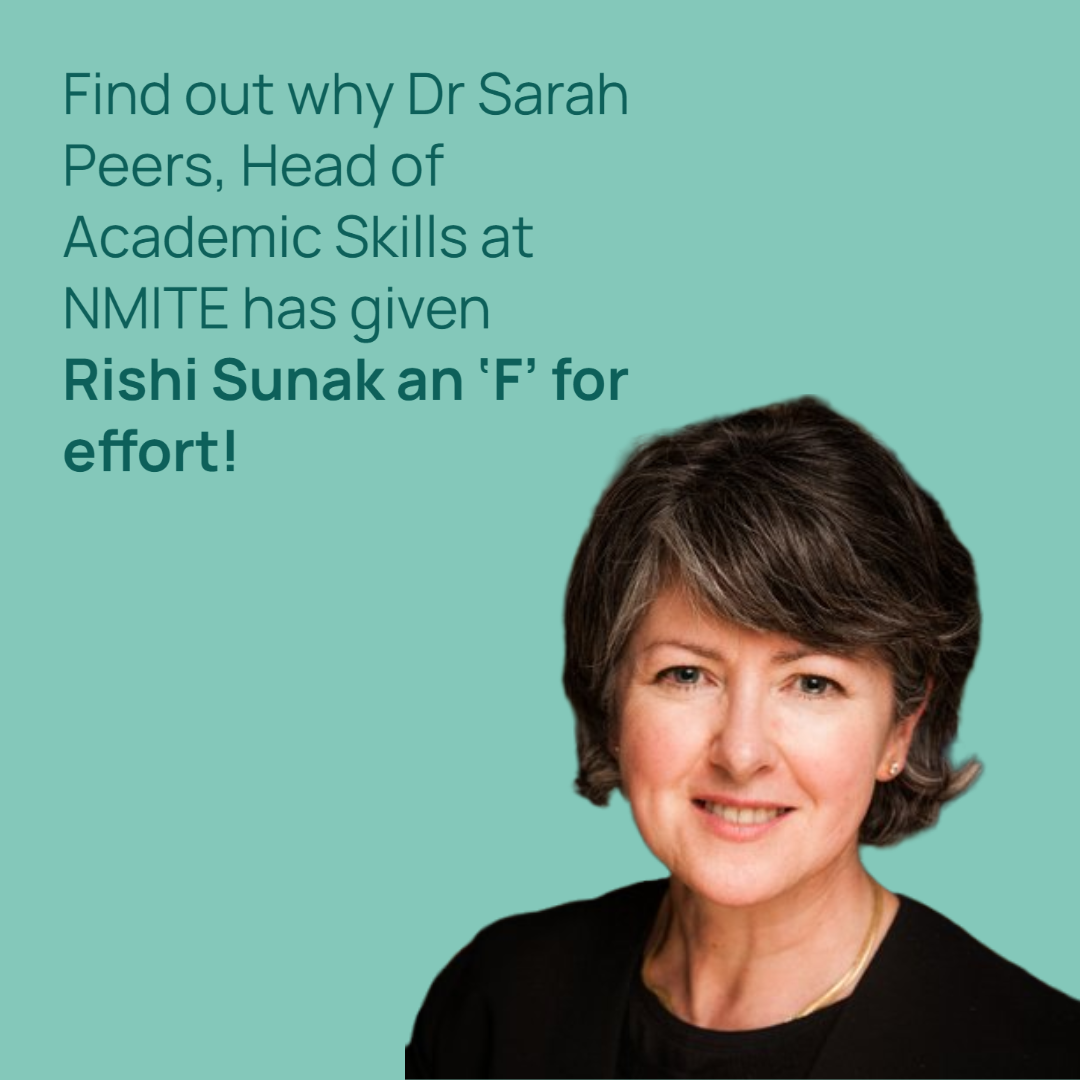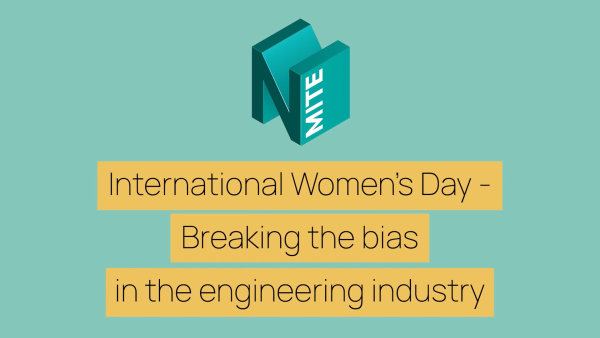
4 January 2023
My reaction on hearing Rishi Sunak’s announcement on mathematics was hugely mixed. A loud “yay!” followed by a shudder and a quiet “yikes…”
Do we all need to study mathematics up to age 18? Why exactly? And if we spend time on maths, what do we spend less time on?
Here at NMITE, we value mathematics – of course we do! We are producing graduates who will be working in the engineering and technology sectors, and they will need to be numerate, communicate with mathematical language, work with quantitative problems, think logically and abstractly, and, particularly when pushing the boundaries of knowledge, they will need to be able to interpret and critique mathematical models and the resulting outputs. But we also put high value on communication skills, creativity, curiosity, passion, grit, and collaboration. We welcome new students who might not have had a chance to develop the expected maths skills after age 16, but who have all those other attributes. And we hope to develop well-rounded professionals who are responsible, resourceful, adaptable, self-aware and who are global citizens making change for good.
So yes, mathematical skills are hugely important… as are writing skills, IT skills, creativity, problem-solving, information literacy, team-working, and general resilience. When we think of increasing time spent on mathematics teaching, we need to be very aware of the time lost to develop other important skills. Such as those developed by making, music, art, history, psychology, sport, awareness of global issues and more.
When we ask our students to develop a particular mathematical skill it is as-and-when needed to carry out an engineering task, it will be of relevance to the activity in hand, it will be aimed at extending their problem-solving skills. And we ask our students to use a multitude of techniques, consider many viewpoints, and apply different thinking processes.
In the UK, too many adults lack basic numeracy skills, and too few of our young continue studying mathematics beyond the age of 16. Of the half or so of our 16 to 18-year-olds currently studying maths, most are on remedial maths programmes to improve their GCSE results. Employers expect a grade 4/C at maths GCSE as a minimum (and sometimes they are not too sure what this means). About a quarter to a third of our 16-year-olds do not achieve this. We do need to do better.
The importance of mathematics education and the development of strong mathematical skills is undeniable. Employers often comment on weak numeracy levels of school leavers; many around the world place a strong emphasis on math education, and in many of the OECD countries it is often required up to age 18. Even where it is not set as a requirement, most other countries do much better at including relevant maths skill development in most educational programmes up to age 18. Mathematics is a valued transferable skill used in a wide range of fields, and strong maths skills can provide a solid foundation for further learning and career development.
But what exactly do we all mean by “mathematical skills”?
Maths is not just numbers and memorising. Nor is it about knowing some mathematical analysis recipes that will guarantee a solution. Maths does include number sense, algebra, analytical techniques, but it is also visualisation, logical and critical thinking, and understanding abstraction. Fixating on numeracy and maths techniques, as so often happens, can be problematic. The problem with numbers and mathematical analysis is that they can feel precise and so lead to a false confidence in the outputs. To paraphrase the well-known saying in computing “garbage in, garbage out,” “rubbish maths leads to rubbish results”: we can try to quantify or abstract anything but if the basic assumptions are incorrect, the simplifications are too coarse, the interpretation weak, then our final answer can be very wrong. The sort of higher-level maths skills we would like our engineers to have include being able to critique mathematical models, identify gaps and weaknesses in the reasoning, question the inputs and process, so that the interpretation of the outputs becomes meaningful and real. Those skills are often far removed from the maths skills usually valued by our politicians. Please NO MORE from the “memorise multiplication tables up to 12 by 12” school of philosophy. We know that continuing to teach maths in the same way as we have in recent years will lead to the same results, that is too many 16-year-olds not achieving the basic grade 4/C at GCSE and most put off mathematics for ever. Remember Einstein’s definition of insanity. In England we continue to do the same in education and continue to fail in the same way. That’s insane.
How can we better develop maths skills? By building the need for those skills into problems that are real to the learner.
Let’s think holistically about education not just about “mathematics.”
Adults struggle to learn new skills if not applied to their lives. So how can we expect young people to learn the abstract concepts of mathematics without context, without motivation, without using the tools and technologies they see every day? In the UK we are struggling with the lack of mathematics teachers and adults who would be willing and able to provide the sort of teaching and learning experience that will be less of what has failed so far and more relevant. Schools and colleges cannot find the people needed for the teaching we are doing right now. We need to work on these fundamental issues first.
The announcement was not accompanied by any form of detail of how it might happen. If Rishi were a Year 7 pupil submitting his solution to a maths problem and he only gave me the final answer, I may have given him a C (assuming it was the correct result of course) with the strict injunction “Where is the working out for this?” But given he should be working at a much higher level, I cannot even give Rishi an E for “effort.” It is an F from me.
What are your thoughts on the announcement? Is it a step in the right direction, or an ill considered approach to growth in STEM?






